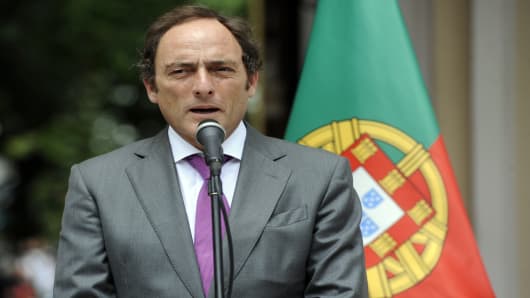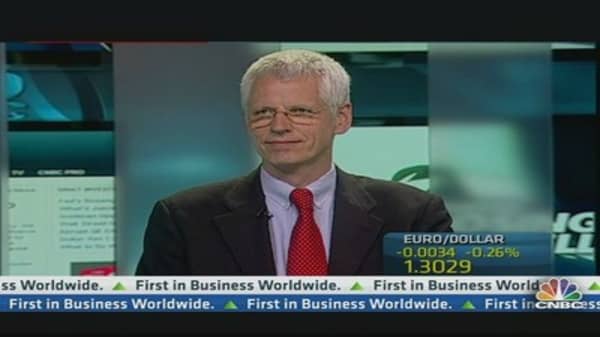Portugal faced a full-blown crisis on Tuesday after Foreign Minister Paulo Portas became the second minister to resign from the center-right government in a 24-hour period.
Portugal's Prime Minister Pedro Passos Coelho, speaking live on TV to the nation on Tuesday night said he had not accepted Portas' resignation and would speak to his coalition partner.
The leader of the opposition Socialist party speaking to the nation on TV on Tuesday night called for fresh elections and said the government had lost the confidence of the people.
Portugal's finance minister, Vitor Gaspar, who has implemented unpopular austerity measures as part of a 78 billion euro ($101 billion) EU-IMF bailout, stepped down on Monday.
The resignation of Gaspar raised hopes the government would shift away from its austerity program. But he was promptly replaced by Maria Luís Albuquerque, the country's treasury secretary.
The resignation of Portas is a major risk to the future of the government because he leads the CDS-PP, the junior partner in the two-party governing coalition. If his party pulls out from the government, Passos Coelho's Social Democrats would become a minority in the parliament.
"This is the clearest indication yet that the rapidly souring politics of economic reform in Portugal are undermining the credibility of the country's bailout program," Nicholas Spiro, managing director of Spiro Sovereign Strategy said on Tuesday. "Politically speaking, Portugal's adjustment program is collapsing."





